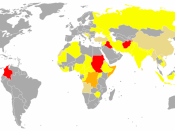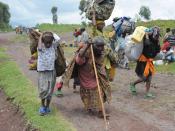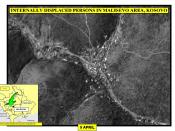Mass population movements were a major feature of the 20th century; armed conflicts have increasingly targeted civilians and led to enforced migration. No area of the world has been spared - from Indonesia to Sierra Leone, Bosnia to Nicaragua - forming groups of people that we now called Refugees.
A Refugee is someone who has fled his or her country because he or she fears persecution based on race, religion, nationality, social group, or political opinion. The definition is sometimes expanded to include people fleeing war or other armed conflict. Asylum seekers are quite different than Refugees and they are usually defined as people who claim to be a refugee. Often, an asylum seeker must undergo a legal procedure in which the host country decides if he or she qualifies for refugee status. International law recognizes the right to seek asylum, but does not oblige states to provide it.
In 1994, millions of Rwandans were subjected to genocidal violence and internal displacement, the world did nothing; however, when more than a million refugees fled into surrounding countries, there was a massive (but not very effective) international response.
At a global scale this is usually what always happens as international interference is not always possible as the barrier of national sovereignty stands in the way. In the more economically developed countries or regions, Europe witnessed a mass movement or formation of 40 million refugees after the Second World War. This led to the rapid formation of many organizations that dealt with this issue and most importantly the United Nations High Commissioner for Refugees being a main constituent in the charter of the United Nations. In other less economically developed countries, countries such as Sudan, during the worst turmoil in 1992, an estimated 800,000 Somalis were refugees in neighboring countries, and 2...


